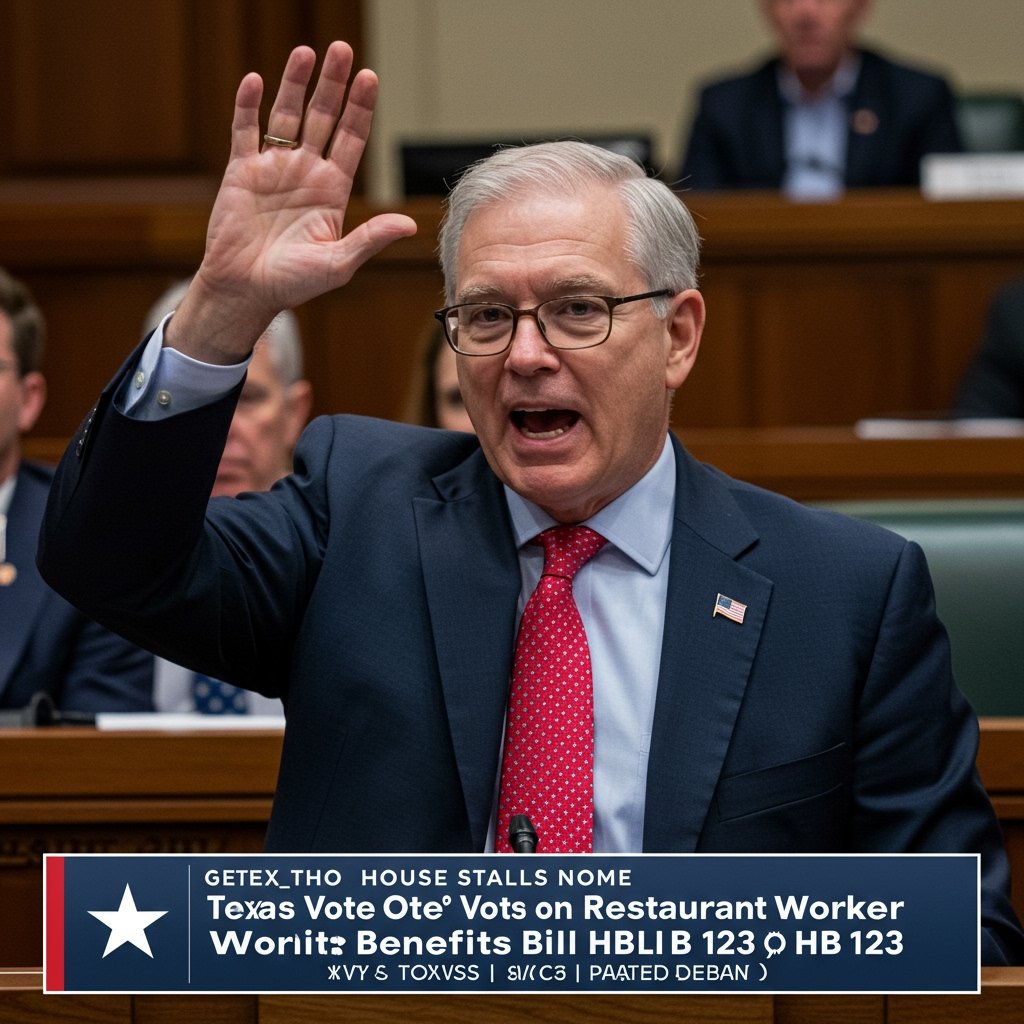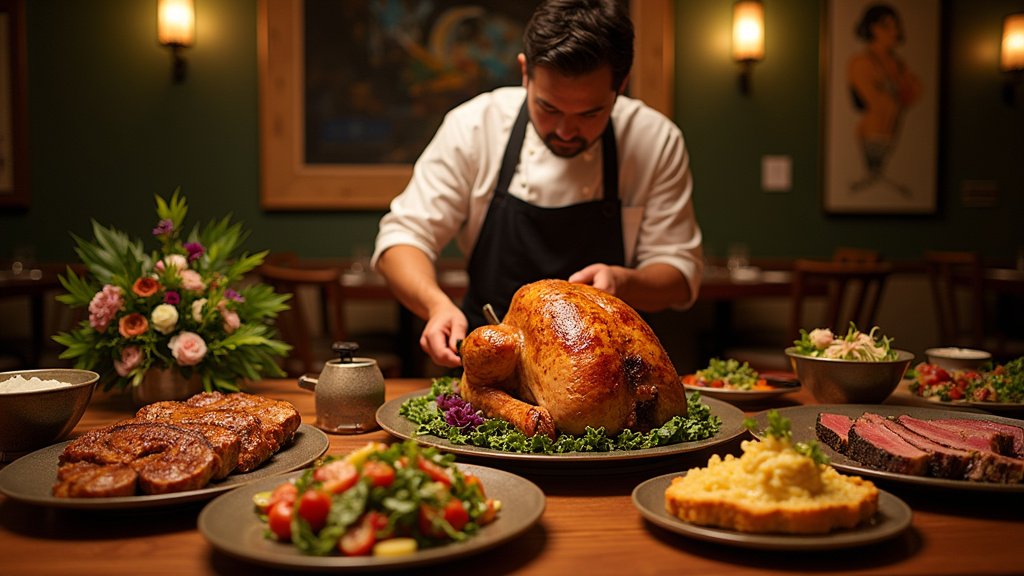Texas House Postpones Vote on Restaurant Worker Benefits Bill After Lengthy Debate
A pivotal legislative battle unfolded in the Texas House of Representatives on February 27, 2025, as lawmakers grappled with the potential implications of House Bill 123. This controversial measure, which seeks to mandate certain employee benefits for restaurant workers across the state, sparked a lengthy and often impassioned debate that ultimately led to the postponement of a scheduled vote. The session, extending late into the evening, highlighted deep divisions within the legislature regarding the balance between business interests and worker protections.
The Substance of HB 123
Introduced by Representative Anya Sharma of District 15, HB 123 represents a significant legislative effort aimed at standardizing employment conditions within Texas’s vast and dynamic restaurant industry. At its core, the bill proposes statewide requirements for employers concerning paid sick leave and contributions towards employee healthcare. Proponents argue that these measures are essential to ensuring a baseline level of dignity and security for a workforce often characterized by fluctuating hours and limited access to traditional benefits. The bill intends to create a more stable and equitable working environment, addressing issues such as the ability for sick employees to take time off without losing pay and facilitating access to necessary medical care.
Arguments For and Against Mandated Benefits
The debate on the House floor showcased a stark contrast in perspectives on the bill’s potential impact. Speaking forcefully against HB 123 was the Texas Restaurant Association (TRA), a powerful industry group representing restaurant owners across the state. The TRA voiced strong opposition, presenting data and arguments suggesting that mandated benefits would impose severe economic impacts on businesses, particularly small businesses and independent operators. Concerns were raised about increased labor costs, potential reductions in staffing levels, and the administrative burden associated with implementing new benefit structures. The association warned that these pressures could lead to price increases for consumers or, in the most challenging scenarios, business closures, thereby hindering economic growth within the sector.
In direct counterpoint, various labor advocacy groups championed the passage of HB 123. These groups argued that the bill is a necessary step towards improving conditions for a vital segment of the state’s workforce. They contended that standardizing sick leave and healthcare contributions would not only improve the lives of individual workers but also yield tangible benefits for employers in the long run. Key arguments included the potential for significantly improved worker retention, reducing the costly turnover rates often seen in the restaurant industry. Advocates also emphasized that ensuring fairer conditions would boost employee morale, leading to better service and a more professional workforce. They posited that a healthy, stable workforce is fundamental to a thriving industry and that the proposed mandates represent a reasonable investment in human capital.
The Course of the Debate
The legislative session on February 27, 2025, was marked by extensive discussion, with numerous representatives taking the floor to voice their constituents’ concerns and their own perspectives on HB 123. Lawmakers explored various facets of the bill, including the specific requirements for accrued sick time, the proposed employer contribution levels for healthcare, potential carve-outs or exemptions for certain business sizes, and the enforcement mechanisms. Questions were raised about the practical implementation challenges, the potential for unintended consequences, and the overall economic modelling presented by both proponents and opponents. The atmosphere in the chamber was described by observers as intense, reflecting the high stakes involved for both the business community and the hundreds of thousands of Texans employed in the restaurant sector. Amendments were proposed and debated, further complicating the legislative process and underscoring the lack of immediate consensus on the bill’s final form.
Vote Postponement and Future Outlook
As the clock ticked past the typical end of the legislative day, it became apparent that the deep divisions and the volume of remaining debate points would prevent a definitive vote on HB 123. Recognizing the need for further consideration and the potential for compromise through amendments, legislative leadership ultimately made the decision to postpone the scheduled vote. The delay provides an opportunity for additional discussion among stakeholders and lawmakers and allows time for potential revisions to the bill text in an effort to address some of the concerns raised during the debate. The future of House Bill 123 remains uncertain following this postponement. While proponents will likely seek to maintain the core requirements of the bill, opponents will continue to push for significant alterations or its outright rejection. The decision to delay signals that lawmakers are not yet prepared to make a final determination on a policy with such profound implications for a key Texas industry and its workforce. The bill is expected to be revisited in the near future, but the timeline and the ultimate outcome remain subject to ongoing legislative maneuvering and negotiation.






